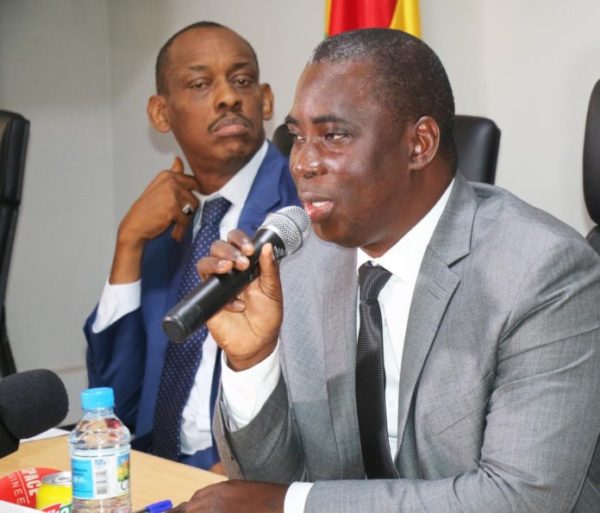The disputes arising from the increase in the price of fuel at the pump does not fall despite the pedagogical effort unfolded on Tuesday, July 3, 2018 by the Guinean Minister of hydrocarbons. In a press conference, Diakaria Koulibaly explained in essence that the fuel subsidy was not relevant because he only took advantage of large consumers and causing a narrowing of the tax base with a loss of several billion francs Guineans recipes.
The government’s decision is actually based on two major arguments. The first is based on the recommendations of the Bretton Woods institutions which advocates for Guinea to broaden its tax base in terms of domestic resource mobilization, to consolidate its economic performance. This is forcing the government to end subsidies, including in the petroleum products sector.
The second is that of the memorandum of understanding signed in February 2016 with the trade union movement having the prerequisites for a possible increase in the price of fuel namely that the price of fuel should remain frozen at 8,000 GNF per liter throughout the year. year 2016 and that beyond 57 USD unit price per barrel, the government could increase the price of fuel consultation with social actors.
The government therefore relies on the fact that the barrel price currently oscillates between 75 to 78 USD, a percentage increase of about 58% compared to March 2015 where the price per barrel was between 46 to 48 USD. And since October 2017, these prerequisites are satisfied legitimizing, according to Guinean officials, any decision to increase the price of fuel.
“To date, the price of 8,000 GNF per liter is down on the real price calculated to consumers because of the strongly upward trend in international oil prices, justified by the decline in world oil production (following the agreement between the OPEC countries in November 2017). Thus, the average price in neighboring countries like Côte d’Ivoire, Mali and Senegal is around 11,500 GNF per liter, which is a difference of 3,500 GNF per liter, “explains Diakaria Koulibaly.
For him, the adjustment of the price of fuel has become a necessity to allow the State to consolidate its financial surface and correct consequently the budgetary troubleshooting that prevails.
Despite the three-day protest strike launched by the unions and calling for the dead city of civil society, the Guinean government has not yet yielded to the demands of trade unionists, that of reducing the price of fuel to its initial price, that is from 10,000 GNF to 8,000 GNF. The government is rather in the optics of setting up mechanisms of “accompaniment”.
In the opinion, the pill is still struggling to pass, Guineans have become accustomed to state subsidies on petroleum products that played a role of “damper” against the principle of flexibility of prices of petroleum products, many voices in civil society believe that the government should have found more pockets of revenue than hydrocarbons, particularly in mines.
The government that does not intend to deprive itself of this financial windfall retorts that the resources, drawn from the decrease of the public subsidy on the prices of petroleum products, should be used for the realization of infrastructures and the improvement of the social services of based. Negotiations with unions continue …



